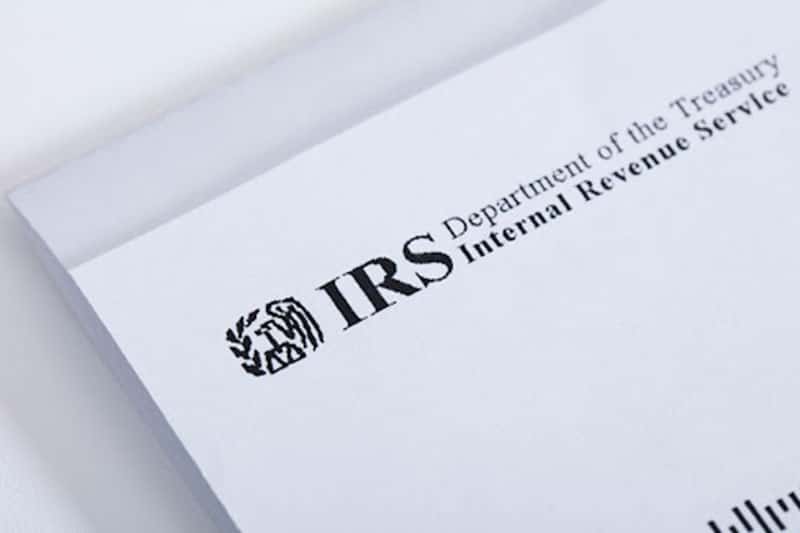Can You File Bankruptcy On IRS Debt?

Tax season is upon us again. For many, that means tax and other IRS debts. Those struggling to pay off tax-related debts may wonder, can you file bankruptcy on IRS debt? The answer depends on your individual circumstances, but in many cases, bankruptcy offers quick, lasting relief from tax debts. Read ahead to find out when IRS debt can be discharged through bankruptcy.
Automatic Stay On Collection
When you file for bankruptcy, an automatic stay is placed on all debt collection while your case awaits court processing. All debtors are prohibited from attempting to collect any payments from you until your case is settled. This includes credit card debt, some mortgages, car payments, and tax debt through the IRS Insolvency Unit, which deals with bankruptcy cases. Until your bankruptcy is closed, the IRS cannot attempt to collect their debt from you. However, just because they can’t collect doesn’t mean the IRS can’t request that you file any delinquent returns. A late return carries not only your balance but also additional penalties and interest. If you have filed for bankruptcy and an automatic stay on your debt is in place, contact a Nevada bankruptcy attorney to determine your next steps. Private debt collectors can face significant penalties for trying to collect a debt during the automatic stay window.
Bankruptcy and the IRS
There are advantages to bankruptcy beyond the temporary Automatic Stay protection. Your default can often extend the time required to pay your debt. In most cases, the IRS is considered a priority creditor, meaning the interest is secured by the Notice of Federal Tax Lien. The IRS uses this instrument to set a claim against your property for payment. Unlike a credit card company, the IRS has greater power to reach some kinds of assets, possibly including your home.
When Can IRS Debt be Discharged?
IRS and tax debt can usually be discharged if the following conditions are met:
- The taxes owed are income taxes (as opposed to payroll taxes, property taxes, etc.) 1040 taxes are included as income taxes. Chapter 7 bankruptcy allows for only income taxes to be discharged. Property taxes, payroll, trust fund taxes, and more will not be removed in a Chapter 7 bankruptcy.
- Tax debt is at least three years old. It’s important to note that the IRS pays close attention to detail. When you file a petition, ensure it has been three years to the date. The IRS has been known to dismiss a petition over a difference of one or two days. Ensuring that your petition is filed precisely will prevent you from having to start over.
- A tax return was filed for the debt two or more years prior to filing bankruptcy. In order to file bankruptcy and have your debt discharged, the taxes you owe must be on record for at least two years.
- Tax debt was assessed by an IRS agent a minimum of 240 days before the bankruptcy petition or not yet assessed at all. If an IRS agent did not evaluate your debt within the last 240 days before attempting to get your IRS debt discharged, then you will not be able to get the debt erased. It’s difficult to know if your debt has been assessed. The IRS handles all debt assessments internally. If you have not received a letter or bill breaking down the amount of taxes you owe, then it is likely that your debt has not been assessed.
- You have not committed tax fraud or evasion. While some may find this obvious, it’s important to note that if you have committed tax fraud or tax evasions at any point in time, you will not be eligible to have your IRS tax debt discharged.
What kinds of debt cannot be erased?

When filing a Chapter 7 or Chapter 13 bankruptcy, your unsecured debts are generally erased during the process. Unsecured debt is a type of debt that is not held by some sort of collateral payment. Examples of unsecured debts are unpaid medical bills or credit card debts. Under a Chapter 13 bankruptcy filing, a court-authorized repayment plan will likely include some of your unsecured debts. Regardless of Chapter 7 or Chapter 13 bankruptcy, there are some secured debts that either type of bankruptcy will not erase. Debts that are not erased by a Chapter 7 or Chapter 13 bankruptcy are:
- Student loans
- Alimony
- Child support payments
- Automotive loans
- Tax debts and government fees
- Mortgages
Through a Chapter 13 bankruptcy, it is possible to reduce secured loans, making it easier to create a repayment plan. Any reduction in a secured loan must be court-approved. In the event of a Chapter 7 bankruptcy, it is possible to get secured loans erased only if the collateral (your house, car, etc.) is given up during the process.
What kind of bankruptcy to file
Chapter 7 – a basic liquidation of assets and the most common type of bankruptcy – will hand over your support to a trustee who will distribute your assets to debtors. As a secured creditor, the IRS will probably get first dibs on your assets. In Chapter 13 bankruptcy, which is a reorganization of your debts, you are required to develop a repayment plan. Once again, you’ll have a trustee charged with using your payments to repay debts, with the IRS remaining a priority.
No matter the filing type, IRS debt can be tricky to dispense and depends mainly on the amount, age, and type of debt you owe. Older debts (over three years) are generally easier to discharge, while more recent tax debt may be difficult to erase.
Unsure of your next steps in filing for bankruptcy? Schedule a free consultation with Bankruptcy Attorney and understand your next steps.
Chapter 7 Bankruptcy
Chapter 7 bankruptcy, otherwise known as liquidation bankruptcy, can be filed by individuals and businesses. The process involves selling all of your owned property to pay off your accumulated debts. This form of bankruptcy is often the most common and is usually the option for individuals that do not own a home and have limited disposable income.
Chapter 7 bankruptcy can only be successfully approved if the individual passes a Chapter 7 means test. This type of bankruptcy can usually be completed within three to five months.
Chapter 13 Bankruptcy
Chapter 13 Bankruptcy is also known as reorganization bankruptcy and can only be filed by an individual or sole proprietorship. In the event of a Chapter 13 bankruptcy, the individual that filed may be able to keep their property. This type of bankruptcy requires you to develop and complete a payback plan. The repayment plan is always court-regulated and can usually be completed between three and five years.
What happens to my tax refund?

Generally, when you file a Chapter 7 bankruptcy, you will have to give over all of your owned property to be dispersed to debts you owe. When filing for bankruptcy, property refers to any financial asset in your possession. Therefore, any tax refund you receive will be considered property and must be turned over during the bankruptcy process. If you’re still unsure of what to do regarding a large tax return, consider searching for a trusted lawyer bankruptcy near me. A professional bankruptcy attorney will be able to answer any questions regarding the process of bankruptcy.
If you need help finding debt relief or more information about filing for bankruptcy, contact attorney Anthony DeLuca at (702) 707-7064 for a free consultation.






